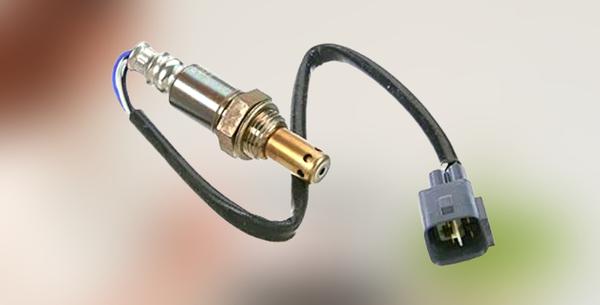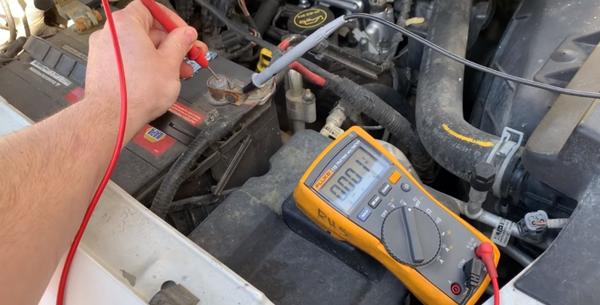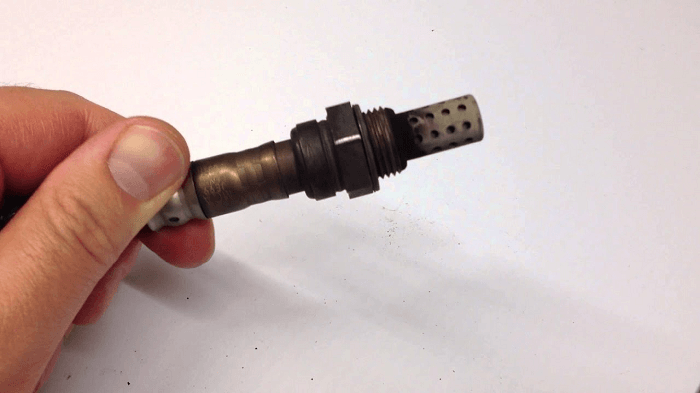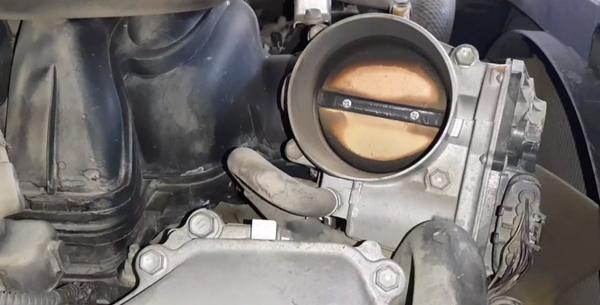Hi, I'm Luis Johnson, an automobile technician, and power equipment professional. By profession, I'm a businessman and operate a car workshop. I have created this...Read more
The battery is one of the most important components of any car; it is crucial for running all the electronic components of your car perfectly. So, the engine can have a hard time starting when the battery dies. Thus, this may lead you to wonder, can a bad battery cause reduced engine power?
Generally speaking, a bad battery won’t reduce engine power. But, a bad battery can cause many other essential components like the fuel injection system, alternator, car computer system, and many more to malfunction, technically reducing the engine power.
Thus, if you are wondering whether your car’s engine performance is reduced due to a bad battery or not, we are here to help you. Keep on reading to know more.
How Bad Batteries Contribute to Encounter Reduced Engine Power?
A bad battery doesn’t directly cause reduced engine power; it causes problems in other car components. This eventually leads to a reduction in the overall engine power and performance.

The battery provides the necessary power for starting the engine and other electrical components like fuel injection, transmission, etc. All these components work together to start the engine to run the car properly.
The primary function of any car battery is simple; it is responsible for supplying power to the engine starter motor. From this power, the engine starter motor will start the engine in your car.
As the engine runs, the alternator generates electrical power to charge the battery and power the vehicle’s electrical system. But, if the battery is dead, it will have a hard time holding the charge, which will affect the alternator badly as it will need to work hard. This will cause extra pressure on the engine resulting in power reduction also.
So, when the battery is bad or old, it can no longer provide power to these components, resulting in a severe reduction in overall engine power.
If Not Bad Battery, Then What Other Factors Cause Reduced Engine Power?
Lower engine power usually means you are experiencing limited acceleration, and your car will slow down. Other than the battery, many other components can also cause decreased engine performance.
So, the battery is not always the primary source of the fault. Keep on reading to know more about these components.
Faulty Fuel System
One of the key reasons that can lead to a reduction in engine power other than a bad battery is a faulty fuel system. The fuel system consists of a few different parts, and its main function is to maintain a proper supply of fuel to the engine.
Thus, when it gets damaged, the flow of fuel is obstructed by the engine. This will trigger the check engine light and lower engine power than usual. When dirt or debris enters the fuel system, it can damage it. Also, sludge can also form on the fuel tank, damaging the fuel system.
If you experience low acceleration, low mileage, or even excess smoke from the exhaust, it can indicate the fuel system is faulty. Also, the fuel injectors may get broken, which makes it difficult to supply enough fuel to the cylinders and lowers engine performance.
Problematic Oxygen Sensor
Oxygen sensors are one of the most important components of your car. The primary function of the oxygen sensor is to monitor and analyze the levels of unburned oxygen in the exhaust. After checking the oxygen level, it sends the result to the ECU.

To achieve the optimum fuel-burning process, the ECU will analyze and provide a balanced plan for the fuel and air densities. So when the oxygen sensor gets damaged, you will see many symptoms like sluggish acceleration, poor fuel efficiency, and more.
Thus, a malfunctioning oxygen sensor will lead to a check engine light. Hence, it will result in bad engine performance as the ECU cannot properly balance the fuel-burning process, which is important for the proper running of your car engine.
Issues with the ECU Box

The ECU is short for Engine Control Unit box; it plays an important role in managing the whole engine system and all the mechanisms related to it. It is the same for cars as motherboards are for computers. So, when this malfunctions, the engine will also show problems.
Overvoltage problems and environmental factors like water infiltration are the two primary reasons why automotive ECU boxes fail. As check engine light sensors are also controlled by the ECU box, when it malfunctions, it can also lead to this light.
Hence, when you see the check engine light and your battery is operating normally, you must first fix the ECU box.
TAC System
A vehicle’s throttle actuator control (TAC) system is made up of circuits and moving components to calculate and regulate the angle of the throttle blades. The usage of this technology enhances ride comfort, fuel efficiency, and emissions.
It also removes the requirement for a manual cable between the throttle body and the accelerator pedal. There is a good likelihood that the TAC system is broken if you see a decrease in engine power.
The TAC system can become damaged by buildups and grime, which can result in poor engine performance and the check engine light. A faulty fuel system or clutch can also damage the TAC system.
What To Do When Engine Power Is Reduced Due To A Bad Battery?
Besides a bad battery, there can be many other things that can lead to lower engine performance. So, when you feel that your engine power is lagging, you must inspect the battery first, along with a few other components, to solve this issue.
Check the Battery Terminals

Sometimes, the battery may be working fine and it is the battery terminals that might be causing issues with the battery itself. So we will need to carefully inspect the terminals.
First, park your car and turn off the engine and open the hood of your car to access the battery. You will need to check the battery terminals for any kind of rust or corrosion.
If you see that the terminals have some sort of rust and corrosion, you will need to clean it. Disconnect the battery from your car and using a brush and a mixture of baking soda and water rub the terminals well till the rust comes out.
After cleaning the terminals well, reconnect the battery and measure the voltage using a multimeter. A working battery should have a reading closer to 12 V.
If you find out that the terminals are severely rusted, this means the terminals are beyond repair and the whole battery needs to be replaced.
Check the Fuel System

If you find out that the battery is working perfectly, but you are still experiencing bad engine performance, you should inspect the fuel system. Access the fuel system of your car and check all the components of the system, like the pump and tank.
Check for any leakages in the fuel system or for any rust or sludge buildup in the fuel tank. Clean and flush the whole system; you should also repair any leakages in the system and refill the tank with new fuel.
Change the Oxygen Sensor

After checking the fuel system, if you see all the components in the system are working fine, but you can still see a lag in engine performance, this means the oxygen sensor may be faulty.
To check the oxygen sensor, you will again need a multimeter; set the multimeter to a 1-volt range. Now connect the red probe of the multimeter to the signal wire of the sensor and connect the black probe to any metal surface of the car for making a ground.
Start your car, and you will need to warm up the engine for 10-20 minutes. Check the reading on the multimeter; the sensors are good, and the reading will be between 0.1-1 volt. Any reading below this indicates the sensors are damaged.
The oxygen sensor replacement is not an expensive task, but it is better to take professional help for the replacement as the replacement process can be a bit difficult.
Check the TAC System

The TAC system consists of many working parts and sensors; hence, when one part of the system is damaged, the whole system starts to malfunction.
So you will need to carefully check all the components like the IC Hall, Core, and broken wires to find out if any of them are causing the issues. Thus, checking and repairing the TAC system by yourself is not possible.
The best option is to call a professional mechanic and take a look into the whole system and fix any broken components as required.
Check and Fix the ECU
If you see that the TAC system of your car is working fine, then the last thing you will need to check is the ECU. If everything else is working fine, then the main culprit is the ECU which is causing decreased engine performance.
Checking the ECU system is fairly easy compared to the TAC system. All you will need to do is use an ammeter and check the voltage drop. Under normal conditions, the voltage will be in the range of 11-15 volts.
If you see that the drop is less or more than this, then it is not stable, and you will need to either replace the whole ECU system or fix it, depending on the degree of damage.
How Do You Know If a Car Battery Needs Replacement?
By now, you already know how important the battery of your car is, and they do tend to become worse as time passes by. Generally, under proper care and maintenance, a car battery should last between 3-5 years. But this time varies based on your usage and maintenance.
So, when the car battery becomes damaged, you will notice many different symptoms, which will help you to understand that your car needs a new battery.
Dashboard Lights
When your car battery becomes damaged, you will notice a check engine light on the dashboard of your car. Even though check engine lights can occur due to other reasons. But if everything else is working fine, then the battery is at fault, and you will need to replace it.
Ignition Issues
The car will have a hard time starting every time you want to turn on the engine. You will notice that the car takes more time than usual to start. Also, it can make some weird noises when you try to turn it on.
Electronics System Malfunctions
Your battery needs replacement if the electronics system, like your auto windows, lighting, heating, or any other electrical equipment, responds slowly or suddenly loses power.
Bad Smell
If you leave a damaged battery in your car for too long, it will start to leak sulfuric acid, which smells like rotten eggs. So, you will get a very bad smell around your car, indicating the battery needs replacement.
Tips To Avoid Poor Engine Performance
Proper Engine maintenance can save you from a lot of trouble and ensure that your engine is always up to the mark. So, our experts have gathered a few essential tips to help you avoid poor engine performance.
- Always replace your battery within 3-5 years; do not wait for it to become completely bad.
- Continually lubricate your engine well with recommended lubricants
- Do not leave your car idle for a very long time
- Make sure to clean your car battery terminal regularly.
- Service your cars regularly according to the manufacturer’s instructions.
Frequently Asked Questions
Here we will talk about all the Faqs related to our today’s discussion. We believe this section will further clear out all of your confusion.
What is the average lifespan of a car battery?
Properly maintained car batteries typically last between three to five years. However, the lifespan can be affected by factors such as usage and maintenance. As a general rule, replacing a car battery after five years is recommended to ensure optimum battery performance.
Will a new battery make my car run better?
Yes, a new battery will improve your car’s performance. Additionally, if your car has frequent discharge issues, it will be solved as the new battery will charge quickly, resulting in better performance.
How does a car act when the battery is dying?
When your car’s battery starts to die, you will have many symptoms, like the engine having a hard time starting. Additionally, you will see all your car’s electronic components are malfunctioning, indicating you need to replace the battery.
How many times can a car battery be recharged?
Based on driving and weather conditions, car batteries generally have a lifetime of between three and five years, somewhere between 500 and 1,000 recharging cycles. An overcharged battery releases a lot of gas. So, it is important to replace the battery after its rated lifetime.
Conclusion
According to experts, car batteries will never last a lifetime; they must be replaced every 3-5 years. When the battery becomes bad, it can cause a reduction in engine power which can affect many other components of your car.
So, if your car has engine power issues, then a bad battery is a must to look at. However, it is always recommended to regularly maintain your car and battery if you wish to ensure the ideal engine performance.
But, if your car battery is working fine, there can be some other issues causing problems in the engine. So, it is recommended to consult a mechanic to fix the problems.

Hi, I'm Luis Johnson, an automobile technician, and power equipment professional. By profession, I'm a businessman and operate a car workshop. I have created this site Batteryquery to help people purchase the right battery for their vehicles. The reason behind creating this site is to help my customers purchase the right car battery who often purchase the wrong one due to their lack of knowledge.
More Posts